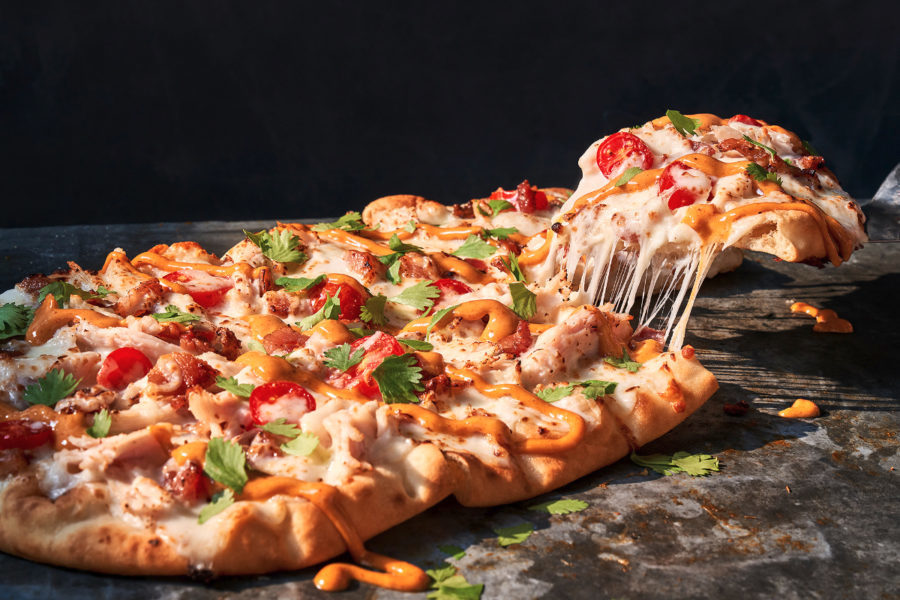ST. LOUIS — On Oct. 28, Panera Bread announced the addition of flatbread pizza to the menu, rolling out nationwide this week. The bakery-café chain’s three new flatbread creations feature extra finely ground flour for delicate yet crisp crust and are topped with hearty ingredients.
The new Panera Flatbread Pizzas are expertly crafted from Panera’s pantry of clean ingredients and will come in Cheese, Margherita and Chipotle Chicken & Bacon flavors. Priced starting at $7.99, the flatbreads have a foundation of crispy dough that is finished on a pizza stone and then topped with clean ingredients including fresh mozzarella and fresh cilantro and basil.
“At Panera, baking is at the core of who we are and what we’re known for – we knew that we had all the elements to bring our delicious, hearty flatbreads to life,” said Claes Petersson, Panera’s chief food and innovation officer. “With the launch of Flatbread Pizza, we are looking to redefine the expectation of pizza and carve out a niche for Panera in the pizza category. Our Flatbread Pizzas encompass the best of what Panera has to offer: clean, delicious ingredients from our pantry on top of oven-baked flatbread that is expertly crafted for our guests.”
According to Panera Bread chief brand and concept officer Eduardo Luz, the company anticipates pizza will become a strong anchor for the company’s growing dinner business.
“Our guests choose Panera because they want to eat delicious food, that they can feel great about eating. Flatbread Pizzas – done the Panera way - are the perfect offering for this moment and beyond,” Luz said. “Our guests have been asking for this for years. We think Panera’s bread heritage and outstanding ingredients meet both the desire for high quality, crafted pizza as well as a growing customer off-premise behavior.”
This is not the first time Panera has experimented with pizza-like products. In 2006, the company introduced a menu item called Crispani, which was a flatbread crust pizza offered in six varieties exclusively in the evening. Panera shelved the product after two years, saying the product was popular but was too labor intensive.


